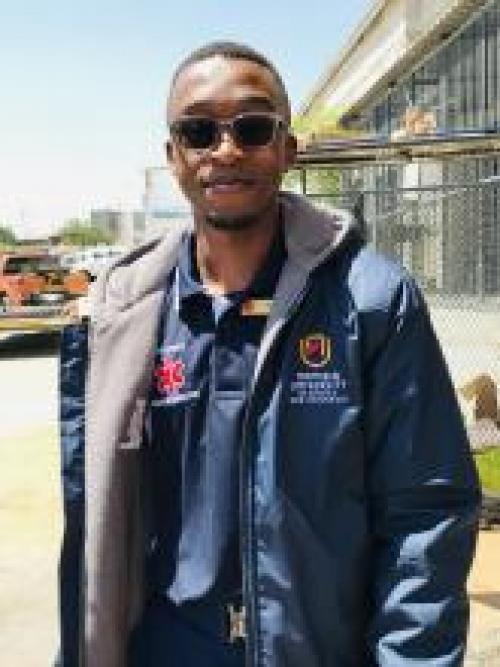The History of Namibian Emergency Services and my role in it

I still remember the first covid-19 call I had while working on a Work Integrated Learning (WIL) shift on one of the ambulance companies in Windhoek. Arriving on scene dressed in a full body isolation suit, with an N95 mask and gloves (with my uniform under of course), I thought to myself’ “A year or two ago, my fellow senior students most likely did not have to put this on nor did they have to fear contracting an infectious disease and possibly taking it back to their families at home.”
My name is Joseph Simson, and I am a second year Bachelor of Emergency Care student.
The coming of the Novel Covid-19 pandemic has led to major adjustments in all aspects of our lives, from how we interact with the ones around us to how we attend class and even how we set up our work environments. The Emergency Medical Care department at NUST as well as the Emergency Medical Services sector in general are no exceptions, and all have undergone their fair share of adjustments, which I have noticed in person as well as read up on. For starters when going for WIL shifts, students always have to make sure they have their appropriate personal protective equipment, this includes an isolation suit, aprons and goggles, from the ordinary examination gloves and should they fail to bring these along, they are not allowed to respond to any calls covid-19 related which I believe was not the case a few years ago. Ambulances are also regularly cleaned and sanitized now compared to post covid-19 times, regularly as in wiped down and sanitised after every call, this is done in order to limit the chances of cross contamination from one patient to another.
The pandemic has also seen adjustments being done to protocols, both locally and internationally as to what medications to administer to covid-19 patients and the procedures one can carry out on them. The pandemic has also led to the NUST EMC department setting up certain regulations in an attempt to limit person to person contact and the spread of the virus within the department, students are divided into groups and allocated class time according to their groups. Like most of the NUST community, certain modules that do not require practical practice have also been moved to online platforms allowing necessary material to be covered online. These are just a few of some of the many changes that have occurred in the EMS world and EMC department since the pandemic.
We have all been impacted by this pandemic in some way or another, hence my advice to the NUST community as well as the nation at large, would be wear your mask correctly when in public, sanitise and wash your hands regularly and avoid touching surfaces such as hand rails unnecessarily. This is no new advice and although we hear it on a daily basis it goes a long way in keeping one safe as well as those around you.
